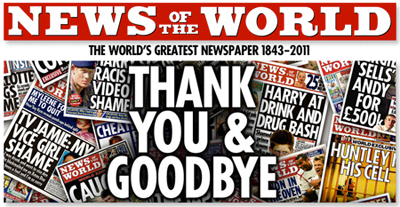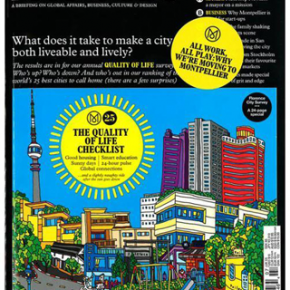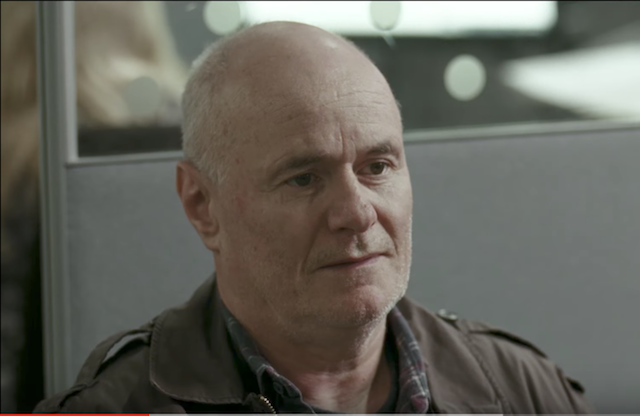In the 1986 Wapping dispute that inaugurated the News of the World as the beast it would become, I have one outstanding memory. I am drinking sherry with friends at 2AM, on a highway we are convinced we have taken – only for TNT vans heavy with bundled copies of News of the World to exit from spidery side streets half a mile away.
In a year of picketing, we never once stopped the labyrinthine plant. The police defended it with their lives. The political classes – and the rest of the media – defended it with their denunciations. And the judges defended it with the law. This collusion between politicians, police, press and polite society repeated in the years that followed.
The fact that the loop has temporarily broken now is hugely significant because for a generation, News of the World represented an ugly and seemingly unassailable power that could not be challenged and had to be adapted to.
Its birthplace, Fortress Wapping, was an almost medieval warehouse, built to withstand anything but a direct and sustained assault on the front gates that the printers never had the numbers, support or confidence to mount.
And its birth was a repulsive spectacle, involving the summary dismissal of around 6,000 workers who had sweated for Rupert Murdoch’s profits, as well as the arrest of over 1,000 workers who protested on the picket lines.
They lost so that profits could be won from cheap tea-break thrills, stacked on a pyre of prurient and repressed Victorian mores, which degenerated in the decade following Murdoch’s 1969 buyout.
Growing up in the 80s, the Murdoch press seemed like an anti-Punk that harnessed the iconoclastic nihilism of the 1970s into a never-ending wurlitzer of reactionary distractions, synched with the rise of Thatcher in the UK, and the Chicago boys across the pond.
And if the Murdoch press was the vesper heart of those dark days, the News of the World was its toxic blood, clogging Britain’s arteries as its circulation inexorably rose.
In a time of heart-breaking defeats, particularly of the miners union, it offered leery titillation, sneery barbs at minorities, and a thin raking of upper crust muck to be sold back to the powerless, for a shot of Sunday morning power at the breakfast table.
From Chaucer to Carry On movies, the UK’s cup had long overflowed with ribaldry, but the News of the World’s ‘all good harmless fun’ moniker faded as the 1980s wore on, and a nastier face started to loom over the cornflakes.
In those days, I had a gentle and unassuming friend – not someone I knew very well – but a fellow traveller on the left, whose father worked for News International. He was sacked in the move to Wapping, and she rarely talked about him
I had briefly worked as a shop printer in the summer of ’86, before going to college. I often traipsed down to the Wapping picket lines to defend the jobs and editorial standards of a newspaper trade I dreamed of working in.
It was an exhilarating and often scary time, involving pitched battles with the same riot cops who may later have sold phone numbers to the hacks they were defending, who we never saw.
But for a boy from the east London suburbs like me, it was a thrilling turning of the world upside down. For my friend’s father it was the end of a world. Shortly after the strike was defeated in 1987, he killed himself.
It would be impossible to tote up the names of all the paper’s other victims but there must have been many, and they will have passed like my friend’s father, unnoticed.
The headline of this story was deliberately provocative and intended – in the worst/best traditions of the tabloid press – to make you read on to this punchline. So here it is.
I spit on the News of the World’s grave because of the people who died so that it could live its worthless life. It added nothing to journalism, created hate where none had been before and drew pain, where none was needed. I don’t feel sorry for its sacked journalists who always had the choice of where they worked. My sympathies are with Murdoch’s victims. May his weapon pass unmourned.





